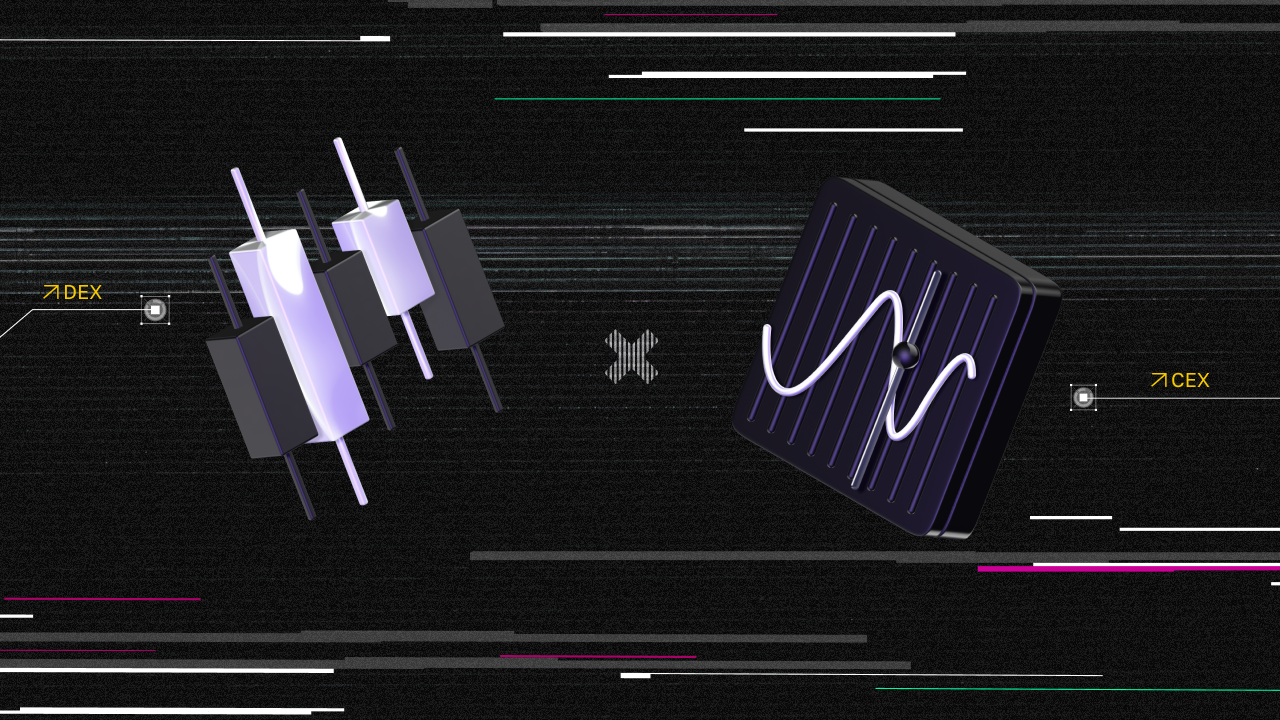CEX vs. DEX: Convenience or Privacy? How to Choose a Crypto Exchange

The crypto market offers two fundamentally different approaches to trading and asset custody: centralized exchanges (CEXs) and decentralized exchanges (DEXs). Understanding their differences is especially important for Web3 founders building their tokens, platforms, or products. The type of exchange you choose can directly impact your launch strategy, token listing, and interaction with your community.
The Exchange as a Gateway to Crypto
For most users, exchanging is simply a tool to buy or sell crypto. However, for Web3 teams, it becomes a core infrastructure layer where the token "lives." Your choice of exchange influences token availability, liquidity, user experience, and security.
CEXs are managed by centralized companies and operate under traditional financial models. DEXs, by contrast, run on smart contracts and give users complete control over their assets.
What Centralized Exchanges Offer
Centralized exchanges remain the standard choice for most retail investors. They offer a user-friendly interface, high liquidity, and many tools. Users can buy crypto with a bank card, trade on spot and futures markets, participate in staking programs, or join launchpads. Many CEXs also offer customer support and account recovery options in case of lost credentials.
However, CEXs come with trade-offs. You give up complete control when you store funds on a centralized platform. A third party effectively holds your assets. The exchange may restrict access, freeze accounts, fall under regulatory pressure, or even shut down entirely. Moreover, identity verification (KYC) is mandatory on most platforms.
How Decentralized Exchanges Work
DEXs enable users to trade directly from wallet to wallet. Smart contracts replace brokers and market makers, executing trades automatically based on preset conditions. To use a DEX, you’ll need a crypto wallet and some native tokens to cover gas fees, but there’s no need for registration or identity disclosure.
This model gives users complete control over their assets, with global accessibility and transparent, on-chain operations. At the same time, DEXs require a higher level of technical knowledge. New users may find the experience less intuitive, especially when swapping tokens, managing liquidity pools, or understanding fees. Smart contracts can also contain bugs or vulnerabilities.
Which Should You Choose: CEX or DEX?
It depends on your goals and experience level. For newcomers, CEXs offer a more accessible and secure starting point. Their interfaces, customer support, and fiat on-ramps make it easier to get started.
But if you value autonomy, privacy, and early access to tokens, DEXs are a better choice. Many new assets are listed on DEXs before they appear on centralized platforms.
For Web3 founders, the best approach is often a hybrid one. At launch, it’s smart to start on a DEX — set up a liquidity pool, test your tokenomics, and gather early feedback from the community. Moving to a CEX can help attract new users and deepen liquidity as your project grows.
How to Make the Right Decision
If you’re a user:
- Just getting started in crypto? Start with a CEX.
- Want complete control and privacy? Use a DEX.
- Investing in new tokens? Most are initially available only on DEXs.
If you’re a founder:
- Launching a token? Start with a DEX for quick access.
- Planning to scale? Prepare for a CEX listing.
- Building a Web3 product? Consider integrating with both types of platforms.
Final Thoughts
Centralized and decentralized exchanges aren’t rivals — they complement each other. Each offers unique strengths and solves different problems. In the fast-moving world of Web3, the most effective strategy is to leverage both models to build a resilient and scalable infrastructure.
If you're launching a Web3 product, creating a token, or developing a listing strategy, the Cware Labs team can help you choose the right path. We support projects at every stage — from tokenomics design to exchange listings and liquidity growth. Reach out to us to map out the best strategy for your project. Follow Cware Academy for expert insights and practical guides created for Web3 founders, developers, and investors.
